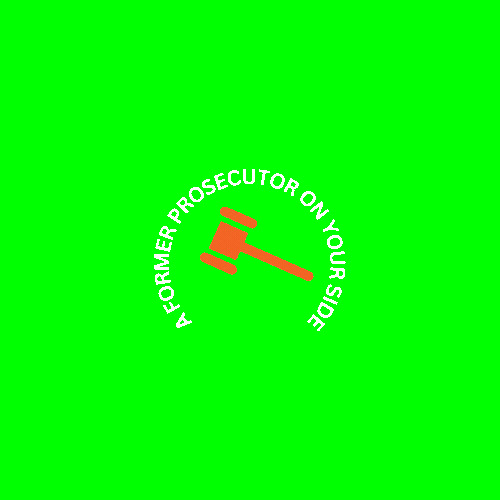Best Guardianship Lawyers in Maryland
Share your needs with us, get contacted by law firms.
Free. Takes 2 min.
Or refine your search by selecting a city:
List of the best lawyers in Maryland, United States
About Guardianship Law in Maryland, United States
Guardianship in Maryland is a legal relationship established by a court in which an individual or organization is appointed to make decisions on behalf of another person who is unable to make decisions for themselves. This usually applies to minors or adults who are incapacitated due to physical or mental conditions. Guardianship can cover decisions about personal, medical, and financial matters. The process is meant to protect the best interests of those who are not able to manage their own affairs or care. Maryland courts take this responsibility seriously and provide specific procedures and safeguards to ensure guardianship is only established when absolutely necessary.
Why You May Need a Lawyer
There are many scenarios where legal help may be necessary when dealing with guardianship in Maryland. Common situations include:
- Seeking guardianship for an elderly parent who is no longer able to manage their finances or personal care.
- Establishing guardianship for a child with disabilities who is turning 18 and will need continued support into adulthood.
- Contesting or objecting to a guardianship petition if you believe it is not in the best interest of your loved one.
- Handling disputes between family members regarding who should serve as guardian.
- Navigating the required court process and completing necessary paperwork.
- Fulfilling responsibilities as a guardian, including annual reporting and accounting to the court.
A lawyer experienced in Maryland guardianship law can guide you through the complex legal processes, protect your rights, and ensure the protected individual’s best interests are upheld.
Local Laws Overview
Maryland’s guardianship laws are found in the Maryland Code, Estates and Trusts Article, Title 13. Key points include:
- Guardianship can be of the person, the property, or both. Guardians of the person handle personal and healthcare decisions, while guardians of property manage financial affairs.
- The court will only appoint a guardian if there is clear and convincing evidence that the individual is unable to make or communicate responsible decisions and there are no less restrictive alternatives.
- A petition must be filed in court, and interested parties, including the person for whom guardianship is being sought, will be notified. The potential ward has the right to attend the hearing and be represented by counsel.
- The process includes an evaluation by qualified experts, and the court may appoint an attorney or guardian ad litem to represent the person’s best interests.
- The guardian, once appointed, is subject to regular oversight by the court, including required reports.
- The court may terminate or modify guardianship if circumstances change.
Frequently Asked Questions
What is the difference between guardianship of the person and guardianship of the property?
Guardianship of the person allows the guardian to make decisions about personal care, healthcare, and living arrangements. Guardianship of the property gives the guardian authority over financial matters. Sometimes, the same guardian has both roles, or different people may be appointed for each.
Who can serve as a guardian in Maryland?
Any competent adult, including a relative, friend, or professional guardian, can petition the court to be appointed. The court will select someone who best serves the ward’s interests. Preferences may be given to family members, but the court is not obligated to appoint them.
Is guardianship permanent?
Not always. Guardianship can be modified or terminated if the court finds that it is no longer needed, such as when the ward regains capacity or passes away.
Do I need a lawyer to file for guardianship?
While it is possible to file for guardianship without a lawyer, legal representation is highly recommended due to the complex procedures and significant responsibilities involved.
How long does the guardianship process take in Maryland?
The timeline varies, but from filing to appointment, the process can take several months, especially if there are objections or contested issues.
What are the responsibilities of a guardian?
Guardians must act in the best interests of the ward, follow court orders, file required reports, manage finances responsibly if applicable, and always act ethically. The court provides oversight and may require annual reporting.
Can a guardianship decision be challenged?
Yes. Interested parties can object to the appointment of a guardian and attend the court hearing. The ward themselves also has the right to contest guardianship and be represented by an attorney.
What are alternatives to guardianship?
Alternatives include powers of attorney, advance healthcare directives, trusts, or supported decision making agreements. The court prefers less restrictive options if they are sufficient to meet the person's needs.
What are the costs associated with guardianship?
There are court filing fees, costs for medical evaluations, possible attorney fees, and ongoing costs for reporting requirements. In some cases, court costs can be waived based on financial hardship.
Will the court provide oversight after a guardian is appointed?
Yes, the court requires regular reporting from the guardian, especially regarding financial management. The court can remove a guardian or change orders if concerns arise.
Additional Resources
- Maryland Courts - Guardianship Forms and Information
- Maryland Long-Term Care Ombudsman Program
- Maryland Department of Human Services - Adult Services
- Maryland Disability Law Center
- Local Maryland legal aid organizations
- Area Agencies on Aging
Next Steps
If you believe you need legal assistance with guardianship matters in Maryland, start by gathering any relevant documents regarding the individual in need of assistance, including medical records and financial information. Reach out to a qualified Maryland guardianship attorney who can provide guidance tailored to your specific situation. You can also contact your local court or a local legal aid office for further information. It is important to act promptly, as guardianship cases can take time to resolve. Remember, the court’s primary goal is to protect individuals who cannot protect themselves, so providing clear and complete information will help ensure a smoother process.
Lawzana helps you find the best lawyers and law firms in Maryland through a curated and pre-screened list of qualified legal professionals. Our platform offers rankings and detailed profiles of attorneys and law firms, allowing you to compare based on practice areas, including Guardianship, experience, and client feedback.
Each profile includes a description of the firm's areas of practice, client reviews, team members and partners, year of establishment, spoken languages, office locations, contact information, social media presence, and any published articles or resources. Most firms on our platform speak English and are experienced in both local and international legal matters.
Get a quote from top-rated law firms in Maryland, United States — quickly, securely, and without unnecessary hassle.
Disclaimer:
The information provided on this page is for general informational purposes only and does not constitute legal advice. While we strive to ensure the accuracy and relevance of the content, legal information may change over time, and interpretations of the law can vary. You should always consult with a qualified legal professional for advice specific to your situation.
We disclaim all liability for actions taken or not taken based on the content of this page. If you believe any information is incorrect or outdated, please contact us, and we will review and update it where appropriate.
Browse guardianship law firms by city in Maryland
Refine your search by selecting a city.










